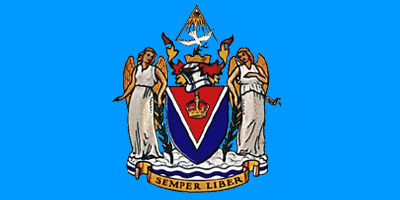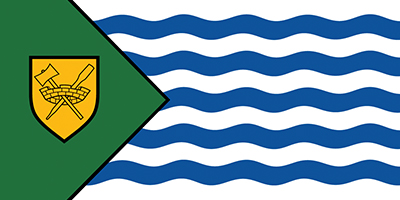British Columbia
Origin of the Name
The southern part of the area now known as British Columbia was called Columbia, after the Columbia River, and the central region was given the name of New Caledonia by explorer Simon Fraser. To avoid confusion with Colombia in South America and the island of New Caledonia in the Pacific Ocean, Queen Victoria named the area British Columbia when it became a colony in 1858.
History
British Columbia was inhabited by the greatest number of distinct First Nations of any province or territory in Canada. Because of the diversity of the Pacific coast - mild to cold climates, seashore to mountaintops - the nations that settled in this area developed completely different cultures and languages. They were different not only from each other, but also from the rest of the First Nations in Canada. Among the First Nations along the coastline were the Nootka, Bella Coola, Tlingit, Haida, Tsimshian, Kwakiutl and Salish. The nations found on the plateaus of the Rocky Mountains included the Tagish, Tahltan, Tsetsaut, Carrier, Chilcotin Interior Salish, Nicola and Kootenay.
Unlike Eastern Canada, where the French and English disputed control of the land, the first two countries to contest areas of British Columbia were Spain and Russia. In the 1700s, the Spanish claimed ownership of the west coast of North America from Mexico to Vancouver Island. At the same time, the Russians were making an overlapping claim: control of the Pacific coast from Alaska to San Francisco.
In 1778, Captain James Cook of Great Britain became the first person to actually chart the land. George Vancouver, a 20-year-old midshipman on Cook's voyage, later led three expeditions of his own and charted more than 16,000 kilometres of coastline. Having firmly established her right to the area, Britain proceeded to settle disputes with both Spain and Russia.
The 1846 Oregon Treaty with the United States gave Britain sole ownership of Vancouver Island and the area north of the 49th parallel. In 1849, Vancouver Island was granted to the Hudson's Bay Company in the hope that it might be settled. Until that time, the only European settlements in that part of the country were fur-trading posts.
When gold was discovered in the lower Fraser Valley in 1857, thousands of people came in search of instant wealth. To help maintain law and order, the British government established the separate colony of British Columbia the following year. In 1866, when the frenzy of the gold rush was over, the colony of Vancouver Island joined the colony of British Columbia.
British Columbia was separated from the rest of British North America by thousands of kilometres and the imposing Rocky Mountains. The promise of a rail link from the Pacific coast to the rest of Canada convinced the colony to join Confederation in 1871.





